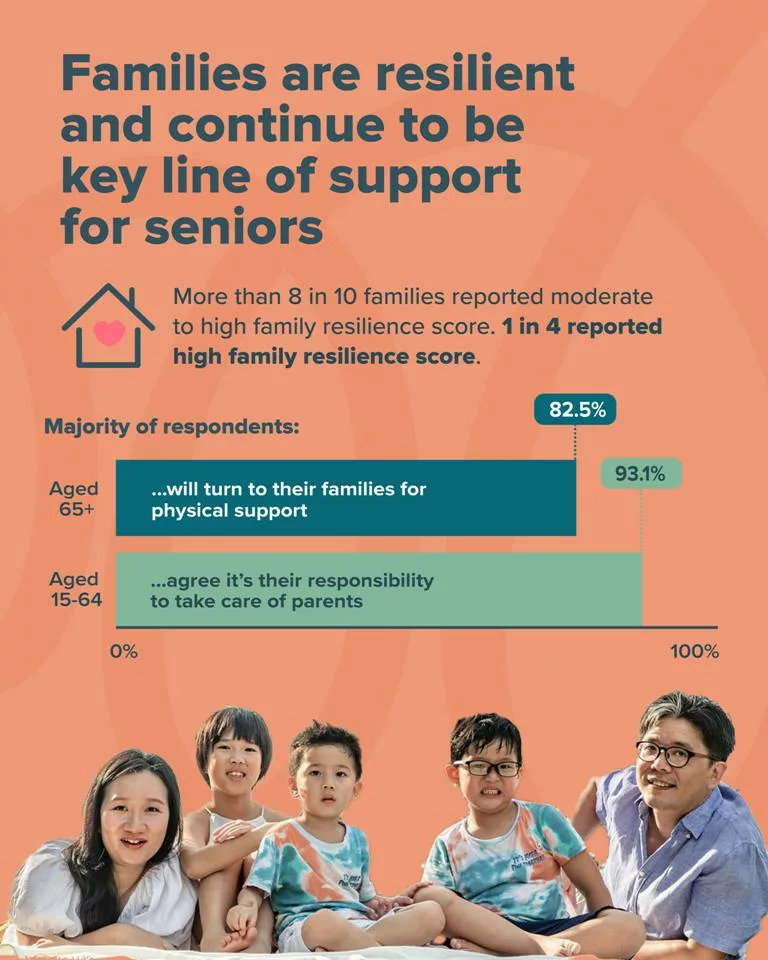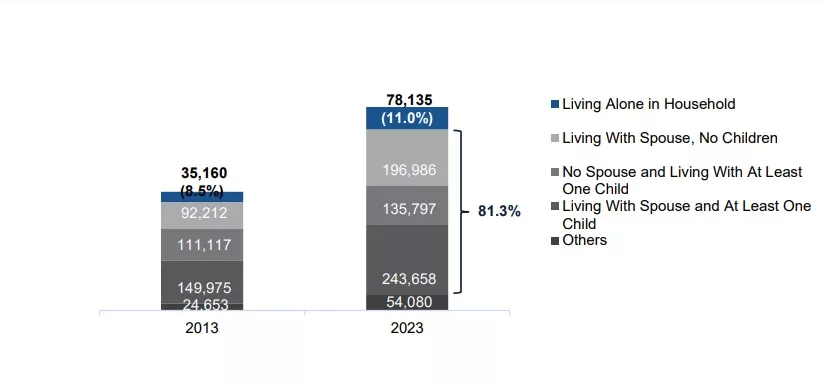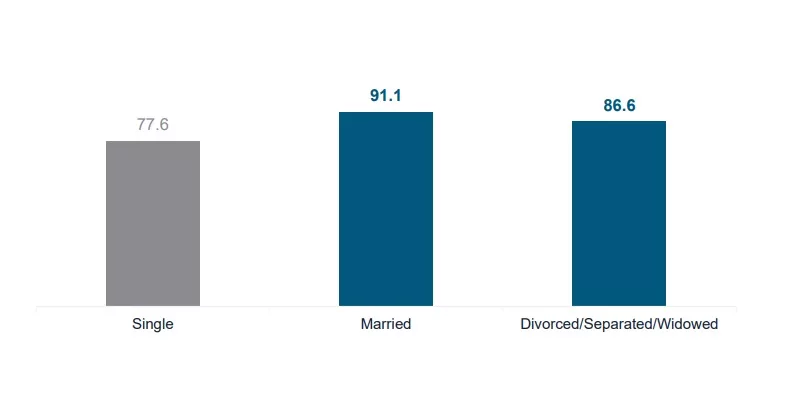A survey conducted by the Ministry of Social and Family Development (MSF) in 2023 has revealed that most citizens believe their families are very resilient and can get through tough times. MSF’s inaugural Family Trends Report was released on Monday. Respondents were randomly picked from a government administrative database where only one respondent per family was selected, CNA reported quoting an MSF spokesperson.

More than 8 in 10 families reported moderate to high family resilience score. One in four reported high family resilience score, as per the survey. The findings showed that 82.5 percent of responders, aged 65 and above, will turn to their families for physical support.
On the other hand, 93.1 percent responders, aged 64 and lower, said they believe it’s their job to take care of their parents.
The same survey found that the majority of respondents reported that they have a close-knit family (86.0 percent). The proportion of respondents who reported having a close-knit family was higher among married (91.1 percent) and divorced/separated/widowed (86.6 percent) compared to those who were single (77.6 percent).
Majority of respondents also reported maintaining close ties with family members outside of their immediate family (67.5 percent). By marital status, a higher proportion of married (75.9%) and divorced/separated/widowed (67.3 percent) respondents reported maintaining close ties with family members outside of their immediate family compared to the singles (53.9 percent).

Families play a pivotal role in providing caregiving and emotional support. From the 2023 MSF survey on families, the majority of respondents reported that they will provide (i) financial (87.6 percent) and (ii) emotional (93.4 percent) support if their family members needed it. Findings also showed that 81.4 percent of respondents will provide regular physical support to family members should they need help with Activities of Daily Living.

The 2023 MSF survey on families found that 85.9 percent of the families reported moderate to high family resilience scores, which means that these families would generally be able to recover from challenges together as a family. In particular, 25.1 percent of all families reported high family resilience scores and are likely to be more adept at working together to recover from challenges.
Of the three domains that underlie the overall resilience score, families with moderate to high family resilience scored the highest in the communication and problem solving (mean score 3.83) domain, followed by the family belief systems (3.80) and organisational patterns (3.74) domains.

The same survey on families also found that, by marital status, a lower proportion of married respondents (8.6 percent) reported low family resilience score compared to divorced/separated/widowed (24.0 percent) and single (20.8 percent) respondents.
Similarly, by domains, married respondents scored higher across all domains compared to single and divorced/widowed/separated respondents.


